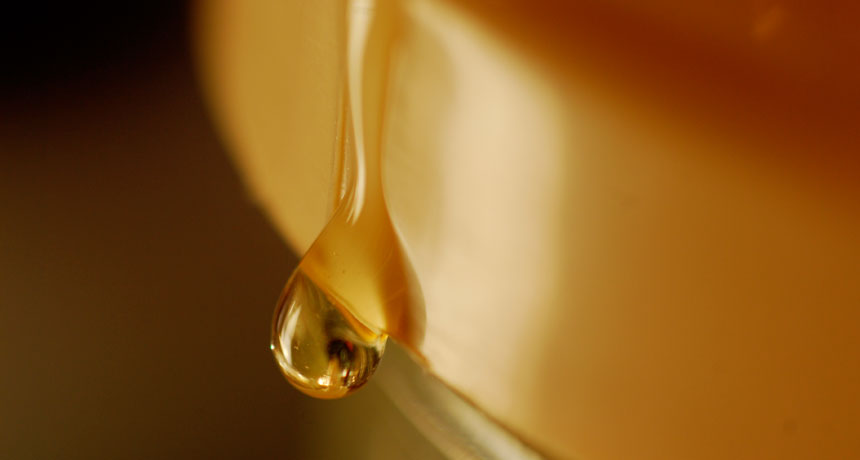Scientists Say: Viscosity
This is a measure of how much a fluid resists stress

This drop of honey flows downward slowly because it is viscous.
Dino Giordano/Flickr/(CC BY 2.0)
This is a measure of how much a fluid resists stress

This drop of honey flows downward slowly because it is viscous.
Dino Giordano/Flickr/(CC BY 2.0)